What are you looking for ?
Content on this site
A person on the directory
Catalog training
Content on this site
A person on the directory
Catalog training
Citizen Science closes the gap between science and society, engaging the public actively in research tasks. This collaboration generates new knowledge vital for societal development, community enhancement, and increased public involvement. Citizen Science Champions drive this transformative process, working alongside motivated individuals to empower communities and effect positive change. Together, they align scientific endeavours with societal values, needs, and expectations. Among their roles, Citizen Science Champions raise awareness of local research opportunities and the chance to participate in diverse projects addressing various societal issues. They also directly implement collaborative science projects at the local level. Below is the list of identified RI4C2 Citizen Science Champions:
Filipa Bessa
Biologist
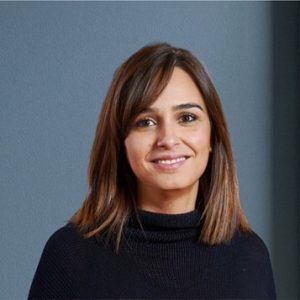
Filipa Bessa is a biologist (PhD in Biosciences) and currently a researcher at Centre for Functional Ecology – Science for People & the Planet (CFE) from the University of Coimbra. Her research focus is related to the assessment of the effects of urbanisation and (micro) plastic pollution on marine and coastal ecosystems. She published 38 scientific articles and during her professional activities interacted with more than 237 collaborator(s) co-authorship of scientific papers. She is the Portuguese member of the International Working Group Micro and Nano Plastics in support of the European Commission Scientific Advice Mechanism (SAM).
Currently, Filipa Bessa is involved in several national and international research projects not only related to Marine and Coastal Science but also citizen science and outreach such as her project Lixomarinho.app.
Elisabete Marchante
Professor
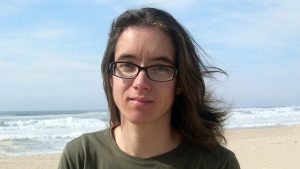
Elizabete Marchante completed her PhD in Biology, specialising in Ecology, in 2008 from the University of Coimbra, Faculty of Science and Technology in collaboration with the University of Copenhagen.
She is currently a professor in the Department of Life Sciences at the University of Coimbra and a researcher at the Centre for Functional Ecology (CFE)
Since 2001, she has been carrying out research into invasive plants (ecology and impacts on the soil and the ecological chain associated with galling insects) and at the same time, she is dedicated to publicising this subject and supporting invasive plant management and control projects such us her citizen science project “Invasoras.pt”.
Bettina Böhm
Research associate
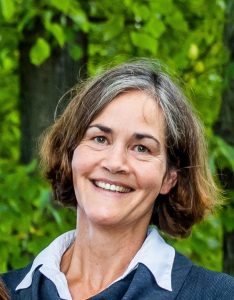
Bettina Böhm’s key areas of research is in geoscientific remote sensing. Since 2010 she is dealing as research coordinator with the establishment and expansion of innovative R&D networks with partners in the European and in the Asian-Pacific Research Area. Therefore, she is also involved in the Virtual Institute for Sustainable Cities and Communities of the EC2U Alliance.
Beyond this activity, she engaged for the idea of pan-European school research projects. She created school material for assessing the impact of local heat islands and thus fostering the connection between researchers and pupils from local schools. In addition, the local projects connected across the EC2U cities and exchanged data and insights, creating a European collaborative experience for the pupils. The initiative was rolled out successfully in multiple EC2U cities and will be continued as part of EC2U.
Alexandrina Dinga
Co-founder of CIVICA Association, Iasi, Romania.
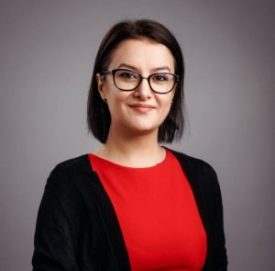
Alexandrina Dinga is a democracy activist, a community organizer, and the executive president and co-founder of the CIVICA Association. Since 2014, this organization has been running projects and programs in active citizenship and good governance in Iasi, Romania. Alexandrina holds bachelor’s and master’s degrees in Ecology and Environmental Protection. She participated as a professional fellow in a community organization through a program funded by the U.S. Department of State. Additionally, Alexandrina was a fellow of the Aspen Institute Romania, and she has 15 years of experience in the non-profit sector in civic and community development.
During these years, Alexandrina initiated and coordinated numerous community development projects and programs with the involvement of hundreds of citizens and other relevant stakeholders from the private or public sector. Collaborative Solutions – a project through which Iași community needs were registered and prioritized, and solution ideas for these needs were documented and developed in multidisciplinary teams. Another initiative is the Program for Civic Involvement and Innovation (piic), which aims to increase the capacity of civil society in Iasi to implement civic initiatives that contribute to improving the quality of life in the city.
Carmen Gache
Professor and ornithologist
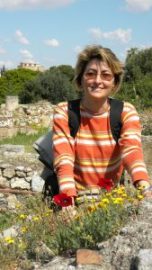
Professor at the University Al. I. Cuza of Iasi (Romania) in the Faculty of Biology and the Coordinator of the Iasi branch of Romanian Ornithological Society (SOR/Birdlife Romania), specialising in ornithology and biodiversity’s conservation, environmental ethics and ecological education. She was the president of SOR/Birdlife Romania (2003 – 2013) and vice-dean of Faculty of Biology (2016 – 2020).
Since 1993, she organised various events (ecological summer camps, one-day fieldtrips for birdwatch, Biology in park, Biodiversity as resource, photo exhibitions etc.) and presented numerous popularising science conferences for public of different ages, promoting the knowledge and protection of birds and their environment.
She encourages the partnership between the scientists, stakeholders and public to identify green solutions for the sustainable development (Fishery and ecotourism in the Ramsar 2422 Jijia-Iasi Wetlands), but also to involve the public in national ornithological census (Look the Stork, Spring alive, European Birdwatch, Midwinter Waterfowl Census etc.).
Ionut Topala
University Professor
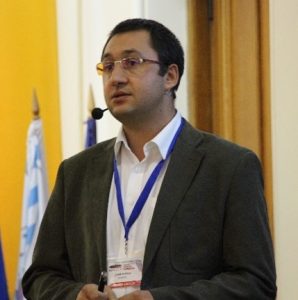
Ionut Topala is a Professor at the Alexandru Ioan Cuza University of Iasi, Faculty of Physics. He teaches Physics of Atoms and Molecules, as well Quality Assurance in Medical Physics and he is actively engaged in scientific research in the field of plasma physics and related applications in life sciences, materials science and characterization or laboratory astrophysics.
Since 2013 he successfully secured funding for Researcher’s Night in Romania, coordinated initially by the “Alexandru Ioan Cuza” University in Iaşi in collaboration with many universities, research institutes and companies. Since then, the actions developed and now the public at large is benefiting from actions organized all over the country. The projects address curious minds, from enthusiastic to skeptical, offering a wide variety of scientific and educational activities. The teachers and researchers invite the general public to participate in unique experiments, conferences, debates and games for children that stimulate their creativity and critical thinking, as well citizen science experiments. Over the years he was actively involved in many science communications actions (festivals, public demonstrations covering physics principles, FameLab and Games of Science).
Prof. PhD Lenuța Alboaie
University Professor
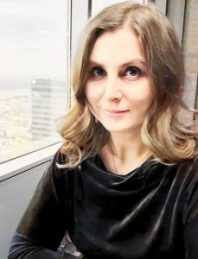
Professor Dr. Lenuta Alboaie is a pivotal figure in the field of technology and innovation at the Faculty of Computer Science, Alexandru Ioan Cuza University of Iași, Romania. With an extensive background spanning over twenty years in research projects, scientific events, and entrepreneurial initiatives, she has significantly bridged the academic and business worlds. Holding the position of Director of the Computer Science Doctoral School since 2020 and Founder and Director of the iTransfer Technology Transfer Center since 2019, Prof. Alboaie plays a key role in promoting and capitalizing on research outcomes through innovative products and services. Her scientific contributions in the realms of distributed systems, cloud/edge computing, and privacy are documented in numerous publications and her involvement in multiple research projects. Prof. Alboaie is also a fervent advocate for women’s participation in STEM fields, embodying leadership and inspiration for aspiring female scientists. Through the projects she has led, she marked a significant advance in data protection through public-private collaboration, resulting in the submission of several patent requests and the publication of numerous scientific papers. Her unwavering dedication to advancing technology and innovation, coupled with her commitment to fostering the scientific community, positions her as a champion of citizen science, promoting collaboration between science and society for a better world.
Marion Albouy
Public Health professor and medical doctor
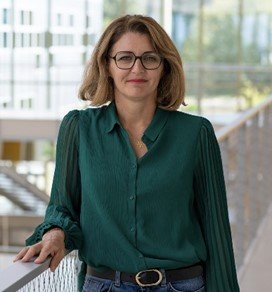
Marion Albouy is a Professor of Public Health at the University of Poitiers, specialising in environmental health promotion. As a doctor at the university hospital of Poitiers, she leads the public health department overseeing therapeutic patient education, health promotion, risk management, ecologic transition, epidemiology, and sexual health. Marion is also involved in the health promotion platform “La Vie la Santé,” employing a salutogenic intervention model house. Her collaborative research covers social psychology, physical activity science, biostatistics, toxicocinetics, analytical chemistry, sociology, and economics. Marion’s work focuses on developing personal skills and favorable environments to address health inequalities and explores the relationship between prenatal exposure to endocrine disruptors and infant development. She introduces the concept of the psycho-exposome, emphasising the impact of social and behavioral factors on environmental health.
Laurent Bosquet
University Professor
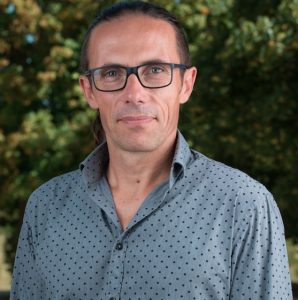
Laurent Bosquet, with dual doctorates in physical activity science and science, has held various academic positions. Since 2012, he heads the MOVE laboratory and coordinates the Sports and Health Chair at the University of Poitiers. He also served as dean of the Faculty of Sports Sciences and deputy vice-president at the University. Notably, MOVE and the Chair adopt a collaborative approach, involving local and international partners in research projects. The emphasis is on disseminating results through conferences, events, articles, reports, and health programmes in collaboration with diverse stakeholders.
Aurélien Pichon
University Professor
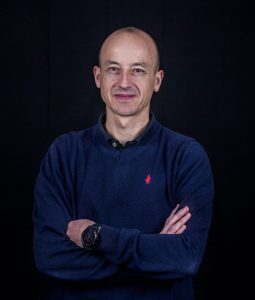
Dr. Aurélien Pichon specialises in physiological adaptation to hypoxia, cardiorespiratory coupling, and haemorheology. With over 10 years of experience, he has conducted high-altitude experiments and collaborated with various national and international research institutions. His work focuses on athletes’ training in hypoxic conditions, cardiovascular, haematologic, and respiratory adaptations, as well as haemorheological properties in hypoxia for both humans and animals.
Dr. Pichon actively engages in research projects, including the Expedition 5300 team studying adaptation mechanisms to altitude in the highest town (Rinconada, Peru), and the development of a campus centre at the University of Poitiers for orientation, training, and sports to promote health and wellbeing among students and the community. (Link to the presentation)
Timon Olivier
Science communication Officer
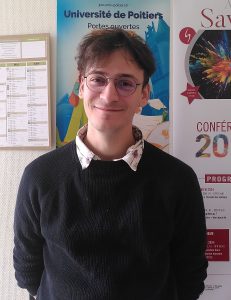
Timon Olivier, a science communicator affiliated with the University of Poitiers, holds a master’s degree in philosophy. Collaborating with researchers across various disciplines, his primary objective is to enhance the accessibility of research findings. In an era dominated by mass media, the imperative to make all sciences widely available is underscored philosophically, politically, and ethically. Timon advocates for researchers to engage collaboratively with citizens, emphasising the crucial role of disseminating scientific knowledge to the broader public.
Sara Serrate González
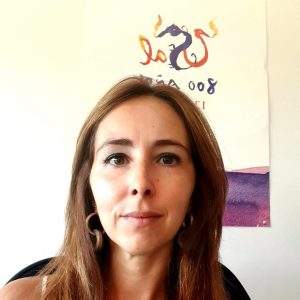

Dr. Pilar Suárez, PhD in Gerontology, Neuropsychologist, and Occupational Therapist, currently serves as the Director of Innovation at Idea (Innovation and Care Development). Additionally, she is the manager of the Living Lab Idea, a center specialized in gerontology and certified by Enoll (European Network of Living Labs).
In the academic field, she is a professor at various universities, including the University of Navarra (UNAV), the Open University of Catalonia (UOC), and the International University of Valencia (VIU). She has also taught at the National Distance Education University (UNED) and the International University of La Rioja (UNIR).
Her expertise extends to the European arena as an expert evaluator of E-health projects for the European Commission.
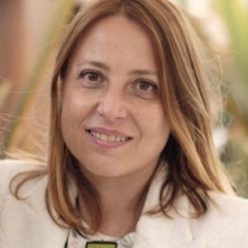
Jarmo Malmsten
Research Coordinator
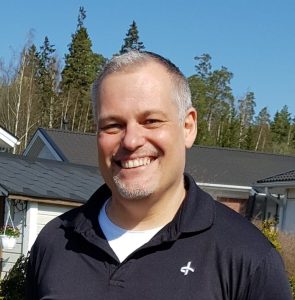
Jarmo Malmsten is a research coordinator at the University of Turku, holding a doctoral degree in geography. He is a member of the EU advocacy and multidisciplinary research team, which focuses on the university’s strategic, multidisciplinary research and education thematic profiles. Specifically, he coordinates two of these profiles: Biodiversity and Sustainability, and Sea and Maritime Studies.
The Biodiversity and Sustainability profile addresses the biodiversity crisis, climate change, and the promotion of sustainable food production. The Sea and Maritime Studies profile involves research and education concerning marine, coastal, and river environments, as well as the cultures, communities, and livelihoods associated with these areas.
Jonna Paavilainen
Research Coordinator
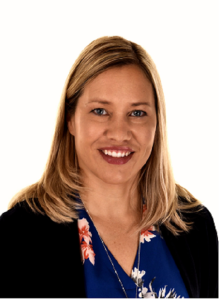
Jonna Paavilainen is a Research Coordinator at the University of Turku. One of her tasks is to support the activities of multidisciplinary strategic research and education profiles at the University. These strategic profiles advance multidisciplinary research and education and strengthen internal collaboration at the University. They create platforms for networks, research and business collaboration, innovations, and strategic partnerships.
The long-term goal of the strategic profile Cultural memory and social change is to strengthen and maintain the conditions for culturally and socially sustainable and healthy life. This requires broader understanding of cultural well-being, sustainability and inclusion among decision-makers and general public, and continuous dialogue between different generations and social groups. The Children, young people and learning strategic profile aims at, for example, to promote research outcomes in order to have an impact on child well-being, society and policy makers.